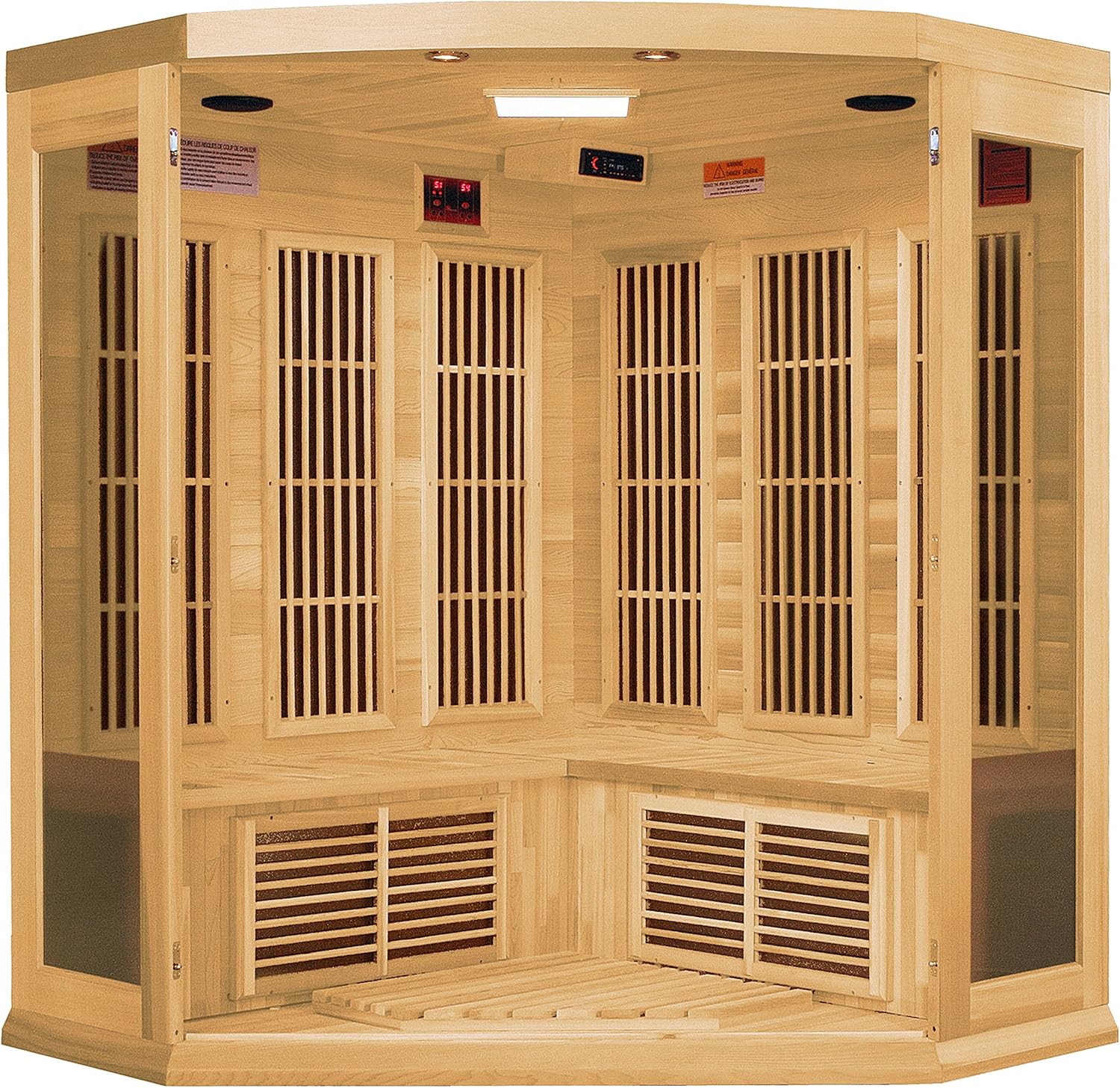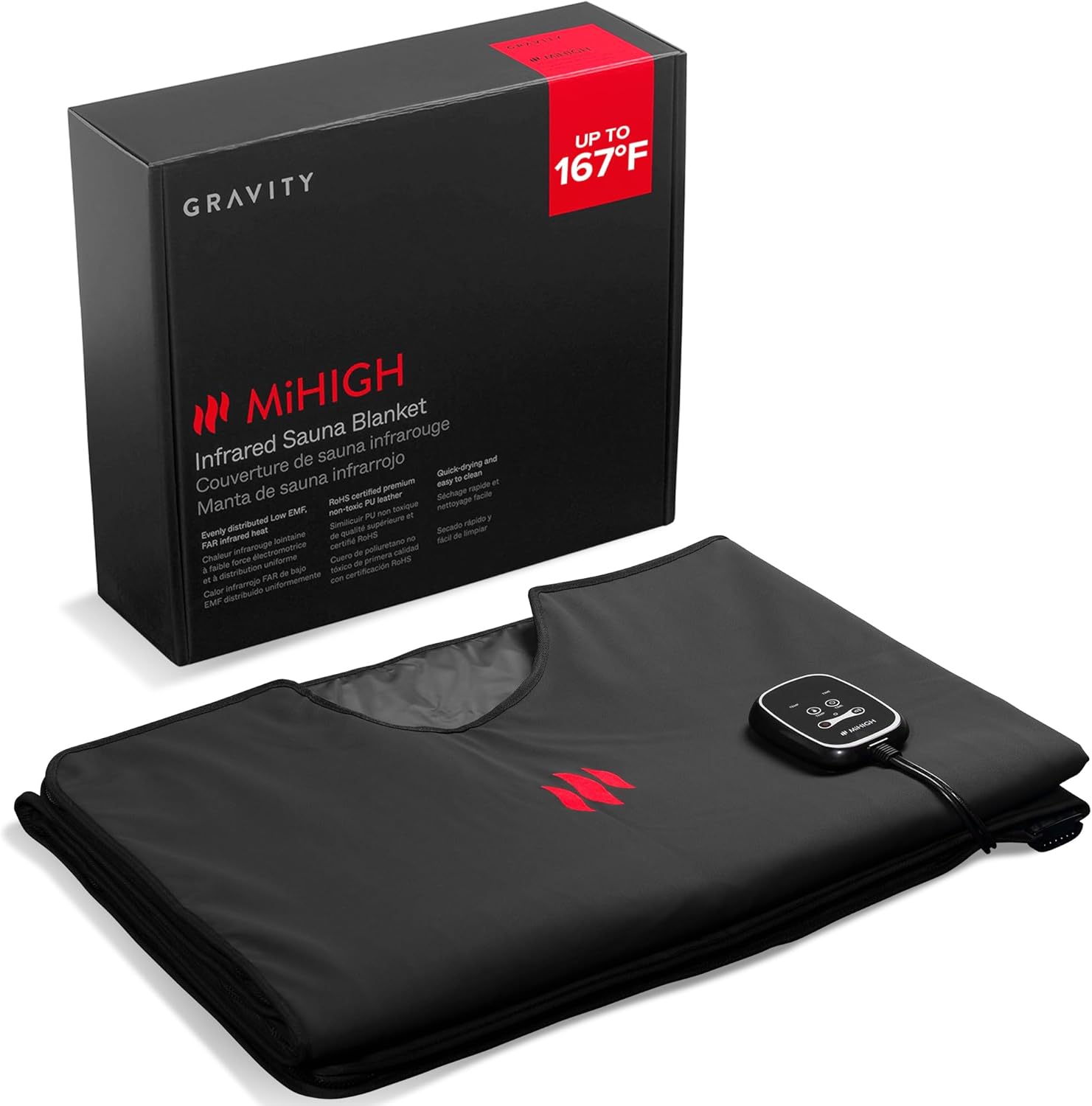Imagine yourself at the end of a tough training session.
Your muscles ache, your heart is still pounding, and all you crave is a way to speed up your recovery so you can hit the next workout with full force.
Enter sauna therapy — a method trusted by athletes for generations to enhance recovery and overall well-being. But how exactly can sauna therapy help you recover after those grueling workouts? And what products can enhance this experience at home? Let’s dive in.
Why Sauna Therapy Is Beneficial for You as an Athlete
Sauna therapy is not just a way to relax; it’s a game-changer for athletic recovery. Sitting in a sauna exposes your body to high temperatures, which increases your heart rate, opens up blood vessels, and triggers a cascade of benefits.
When your muscles are sore and fatigued, the sauna can help alleviate these feelings by improving blood flow and promoting healing. The combination of sweating, increased circulation, and heat has many tangible advantages.
If you’re an athlete, recovery is a crucial part of your regimen. Without efficient recovery, your performance may drop, and your risk of injury can skyrocket.
Sauna therapy helps you recover faster and improves flexibility, reduces muscle pain, and even boosts mental clarity — all of which are critical components to peak athletic performance.
Enhanced Blood Circulation
One of the primary benefits of using the sauna is improved circulation. When you expose yourself to intense heat, your blood vessels expand, which makes it easier for blood to flow to those tired muscles. This process is called vasodilation, and it’s a crucial mechanism for your body to deliver oxygen and nutrients to muscle tissue while removing metabolic waste products, such as lactic acid.
The increased blood flow helps you feel a noticeable reduction in muscle soreness and stiffness. After a strenuous run or weightlifting session, sitting in a sauna for 15-20 minutes can promote circulation and speed up the muscle recovery process, helping you get back to training sooner.
Relief From Muscle Soreness and Tension
If you’ve ever had delayed-onset muscle soreness (DOMS), you know how uncomfortable it can be. That deep, nagging pain a day or two after a workout can affect your performance, daily activities, and motivation to exercise. The heat from the sauna helps loosen tight muscles and alleviate soreness by reducing inflammation.
Considerations for At-Home Sauna Solutions
If you want to add sauna therapy to your home, consider getting a Portable Sauna Tent. One highly rated product is the SereneLife Portable Infrared Home Spa. It’s compact, convenient, and provides all the benefits of an infrared sauna without taking up too much space. Plus, it’s budget-friendly compared to full-sized sauna installations.
Detoxification Through Sweating
As you sweat in the sauna, your body naturally removes toxins. While some people dismiss the concept of detoxification, studies do show that sweating is one of the ways your body expels waste. Heavy metals like lead and cadmium, which can accumulate in your body, are secreted through sweat.
If you’re an athlete, you may be consuming higher amounts of these toxins unknowingly through your diet or environment, so sweating it out can be beneficial.
The benefit of detoxification goes beyond physical health. Detoxing helps you feel more mentally clear and energized. After regular sauna sessions, you’ll find that you not only recover faster physically but also feel rejuvenated mentally.
For added comfort, check out the LifePro Far Infrared Sauna Blanket. It allows you to enjoy the benefits of infrared heat while lying down comfortably.
Heat Shock Proteins: The Secret Boost
Heat exposure from sauna sessions stimulates the production of heat shock proteins (HSPs), which play a key role in muscle repair and growth. These proteins are produced when your body is exposed to stressors like heat. They help to protect and repair muscle cells, making sauna therapy particularly useful if you’re pushing yourself to the limits during your workouts.
By regularly using a sauna, you’re essentially “training” your body to become more resilient. These heat shock proteins contribute to enhanced muscle regeneration and strength gains. Think of them as a secret bonus to your normal workout gains, helping you build and maintain muscle more effectively.
Stress Reduction and Mental Clarity
Let’s be real — stress affects your performance as much as physical fatigue. Being in a sauna creates a soothing environment that naturally reduces stress levels by releasing endorphins. Endorphins are your body’s natural “feel-good” chemicals, and they help you relax, reduce anxiety, and generally boost your mood.
After an intense training day, using a sauna can help lower your cortisol levels, the stress hormone that can interfere with muscle recovery and overall well-being. Reducing stress also aids in sleep quality, which is vital to recovery.
The better you sleep, the better your muscles repair, making you stronger and better prepared for your next workout.
To enhance relaxation during your sauna sessions, consider using Zen Bamboo Aromatherapy Essential Oils. They can be used with essential oil diffusers, and the calming scent will help you further relax and decompress.
Improved Cardiovascular Fitness
It might surprise you to learn that sauna use has benefits that are similar to moderate cardiovascular exercise. When you’re in a sauna, your heart rate increases significantly, which in turn helps improve cardiovascular conditioning over time.
Some athletes refer to this as “passive cardio” — it’s not a replacement for aerobic exercise, but it provides additional cardiovascular benefits that contribute to your overall fitness.
Regular sauna sessions have been linked to lower blood pressure, improved blood vessel function, and enhanced endurance. If you’re training for endurance events like marathons or triathlons, spending time in the sauna could help boost your cardiovascular capacity and enhance your performance on race day.
Sauna After Cold Exposure: Contrast Therapy
You might have seen elite athletes alternating between cold baths and sauna therapy. This method is called contrast therapy, and it’s a great way to improve muscle recovery and reduce soreness.
When you expose your body to extreme cold (like in an ice bath) and then extreme heat (in the sauna), your blood vessels constrict and then rapidly expand.
This cycling between vasoconstriction and vasodilation is a fantastic way to pump metabolic waste out of your muscles and bring in fresh, nutrient-rich blood. If you haven’t tried it yet, consider starting with short durations in both the cold and the hot until your body acclimates.
For cold therapy at home, the Polar Recovery Tub is a well-rated, convenient product that you can buy on Amazon. Pair it with a sauna session, and you’ll have your very own recovery center right at home!
Skin Health and Joint Pain Relief
Sauna therapy can also benefit your skin by increasing blood flow and opening up your pores. As you sweat, dead skin cells are removed, and your skin regenerates more rapidly.
If you struggle with skin conditions such as acne or eczema, regular sauna use might help alleviate some of these symptoms by promoting cleaner, more oxygenated skin.
Heat therapy is also excellent for relieving joint pain, particularly for those of you who may have old injuries or joint discomfort from years of intense training. The warmth penetrates deep into your joints and muscles, providing relief from stiffness and discomfort.
The HigherDOSE Infrared PEMF Mat, is a versatile product you can use for targeted heat therapy that can benefit joints and muscles between full sauna sessions.
A Routine You Can Commit To
Like any aspect of athletic training, consistency is key. Sauna therapy works best when it’s part of your regular routine.
The good news is that it doesn’t have to take a lot of time.
Spending as little as 15-20 minutes in a sauna after a workout can provide many of the benefits mentioned here.
Tips for Getting the Most Out of Sauna Therapy
- Stay Hydrated: Sauna sessions can lead to significant water loss, so always make sure to hydrate before and after.
- Consider having a Hydro Flask Water Bottle with you, which is perfect for keeping your water cold during your session.
- Listen to Your Body: Start with shorter sessions and gradually increase your time as you grow accustomed to the heat.
- Pre-Workout vs. Post-Workout: A sauna session can be great both before and after a workout. Before exercise, it helps loosen muscles, and after exercise, it aids recovery. Test what works best for you.
Common Questions About Sauna Therapy for Athletes
How often should I use the sauna for recovery?
Ideally, you should aim for 2-3 sessions per week, with each session lasting between 15-30 minutes. However, your tolerance for heat is individual, so listen to your body.
Are there any risks to using a sauna regularly?
For most people, sauna therapy is safe. However, if you have any cardiovascular issues or underlying health conditions, it’s best to consult your healthcare provider before starting a sauna regimen. Avoid spending too long in the sauna, as dehydration and overheating are real risks.
Should I eat before or after the sauna?
It’s best not to eat a heavy meal before using the sauna. A light snack is fine, but avoid anything that could make you feel bloated or uncomfortable. After your session, make sure to rehydrate and refuel your body with nutritious food to aid the recovery process.
Sauna Therapy for Longevity in Sports
The benefits of sauna therapy extend beyond the immediate effects on muscle recovery. By using a sauna consistently, you’re investing in your long-term athletic performance. Reduced inflammation, improved circulation, and better stress management all contribute to prolonging your athletic career.
Whether you’re a weekend warrior, a dedicated amateur, or a seasoned professional, sauna therapy can make a positive difference in how you feel, perform, and recover.
Sauna therapy is an effective way for you to elevate your athletic performance and overall health. The combination of improved circulation, muscle relaxation, mental clarity, and stress reduction makes sauna use a highly beneficial tool for any athlete. If you haven’t integrated it into your post-training routine, now is the time to consider the investment.
Whether you opt for a portable sauna or enjoy sessions at your local gym, the benefits to your athletic performance and recovery are well worth it.
Start with short sessions, stay hydrated, and feel the difference as you use this ancient yet powerful tool for modern athletic recovery. Your body and mind will thank you!
Written by:

